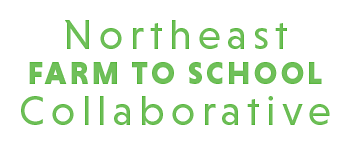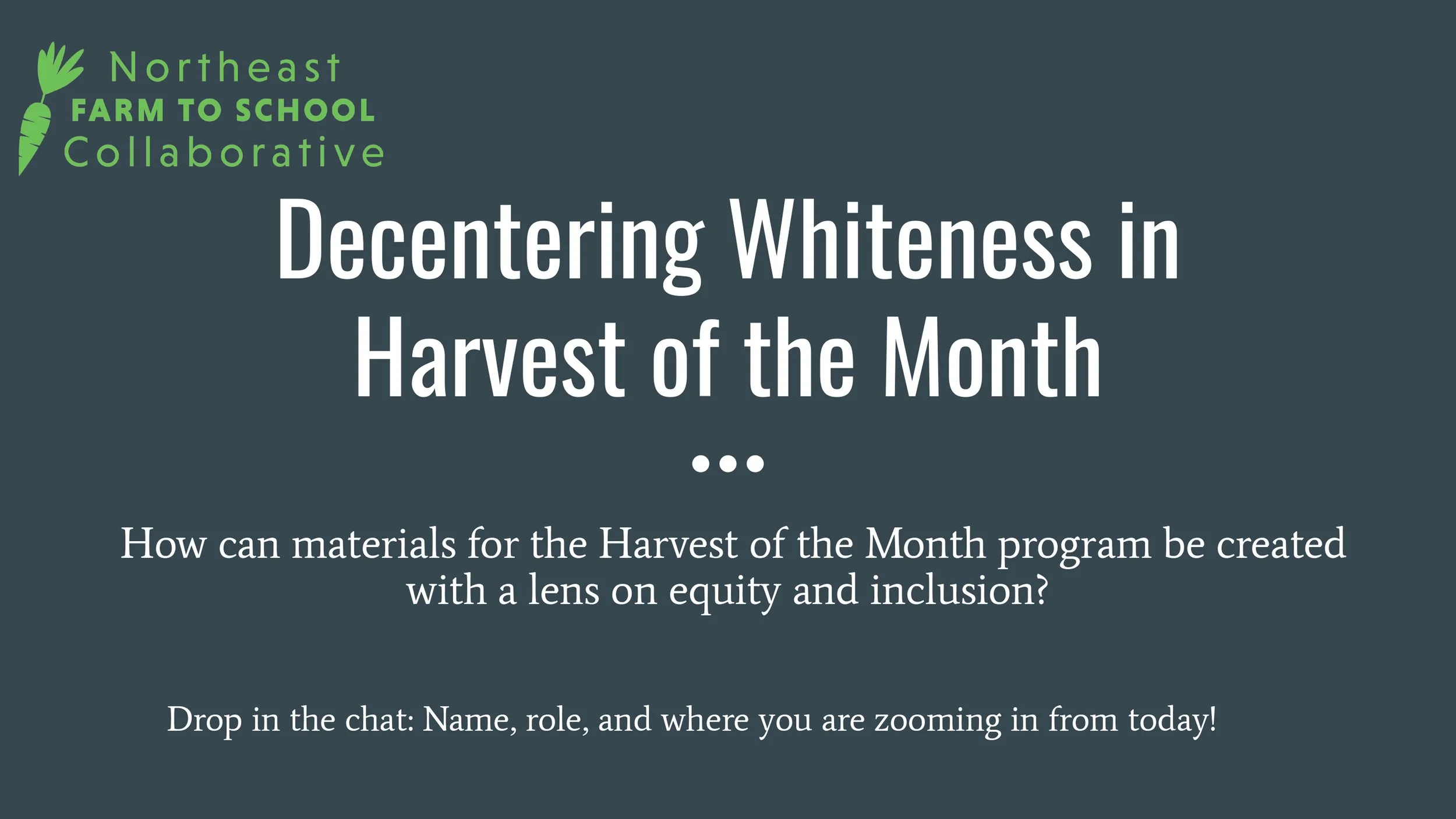How can we adapt our Harvest of the Month (HOM) materials to be representative of our Northeast communities?
This is the question members of the Northeast Farm to School Collaborative explored with the goal of finding and showcasing examples of HOM adaptations from across the Northeast that successfully use a culturally sustaining approach and model inclusivity.
This inquiry took place over two years (2021–23) full of rich conversations on the meaning of equity and how to build and share inclusive resources, coupled with on-the-ground partnerships with schools and educators.
Now we’re sharing the results of this effort. Below, find audio and visual stories of how these HOM-related initiatives were created in schools across the Northeast, and explore tools and resources that you can download and adapt. We invite you to explore and be inspired to decenter whiteness and apply an equity lens as you rebuild your own Harvest of the Month materials.
Explore the Stories & Resources

Connecticut
UConn Extension’s Put Local on Your Tray provides values-based procurement technical assistance and support relationship building between schools and farmers. They have committed to transform their network by building strong relationships with BIPOC-led organizations and communities to integrate and represent them within educational materials and communications.
Maine
The Maine Farm to School Network (MFSN) Equity Subcommittee created a tool, Equity in Farm to School: Do’s and Don’ts of Food Based Education, intended for anyone teaching about food to help elevate awareness of how to be inclusive of a diverse set of backgrounds and lived experiences when teaching or creating materials related to food. One example: the Wabanaki Foods in Maine Schools: Wild Leafy Greens created for the Maine Harvest of the Month Program.
Massachusetts
When you think of a family recipe, what memories does it conjure up? Can you imagine a setting? The people involved? The specific flavors? Jessica Lander, a U.S. history teacher at Lowell High School, teaches recent immigrant and refugee students from more than 30 different countries and asks her students to explore these questions in the Tasting History Project, which comes at the tail end of an in depth study of US immigration.
New Hampshire
The Indigenous Harvest Calendars project is a collaboration between New Hampshire Farm to School, the Indigenous New Hampshire Collaborative Collective, and the Cowasuck Band of the Penacook Abenaki.
Vermont
With equity in mind, a team of Vermont Farm to School & Early Childhood Network members are making revisions to the Vermont HOM that honor diversity and an approach to food systems education that is culturally affirming for BIPOC students, families, and community members. As an HOM supplement, the Network is also supporting the creation of a toolkit for schools and districts to build recipe and food story collections for farm to school curricula that celebrate the cultures and foodways of their own students and community.
Watch Our Workshop
The Northeast Farm to School Collaborative team behind this project presented at the 2023 Northeast Farm to Institution Summit to dive into this project and share stories of success. Original workshop date: April 18, 2023. Download the slide deck.
Speakers:
Dinah Mack (she/her), Massachusetts Farm to School
Stacey Purslow, UNH: New Hampshire Farm to School
Aimee Arandia Østensen, Shelburne Farms Institute for Sustainable Schools
Sherlene Rodriguez, UConn Extension
Shannon Raider-Ginsburg, UConn Extension
Malia Demers, FoodCorps







